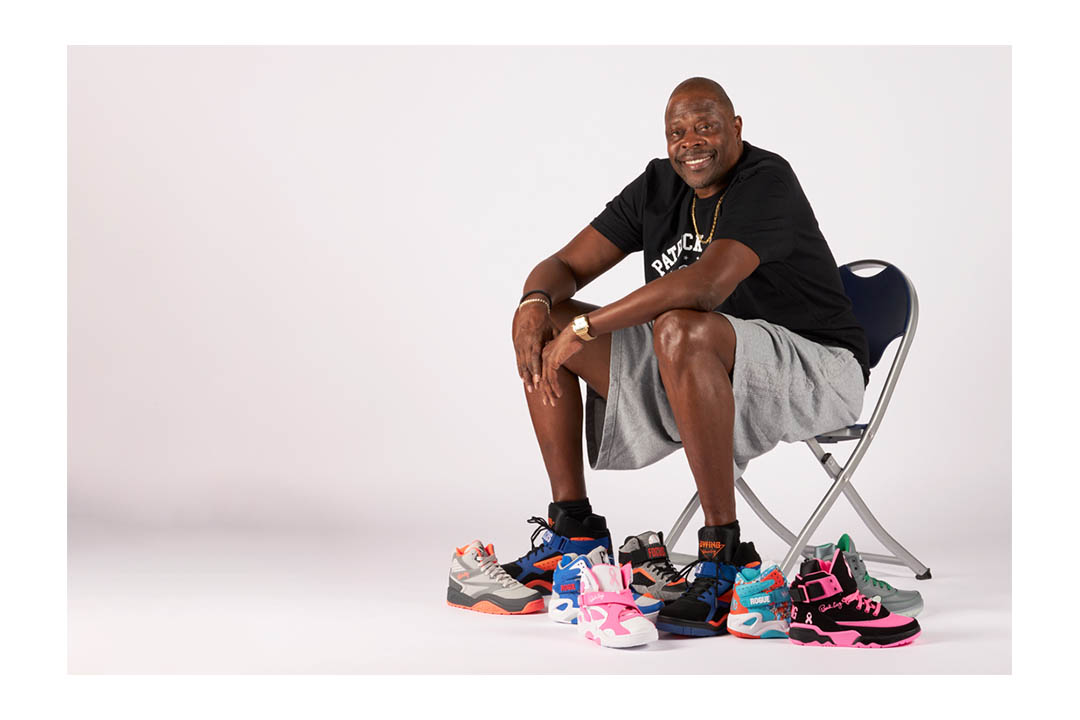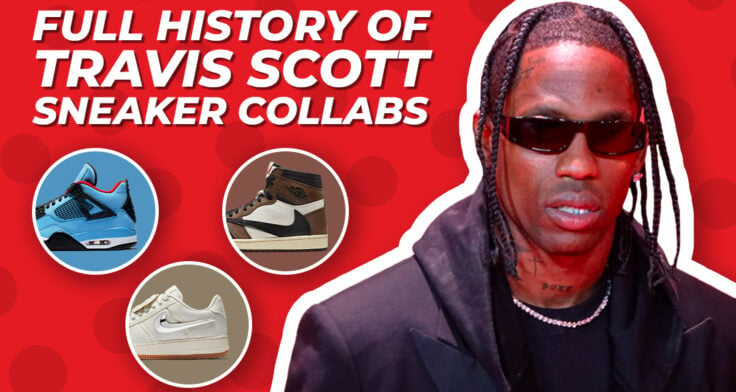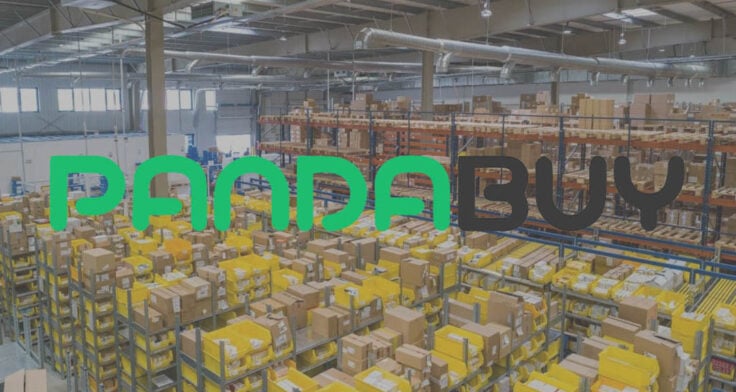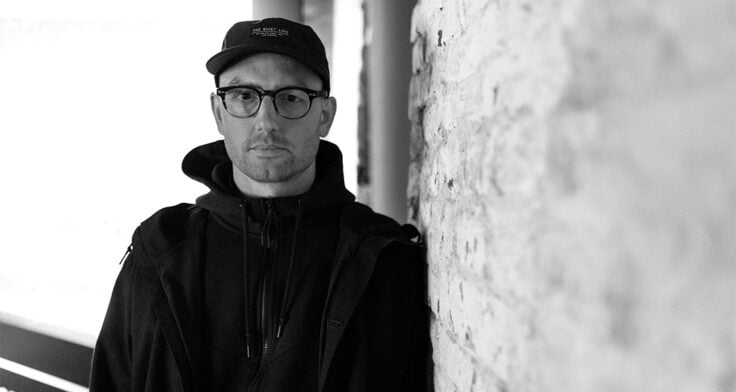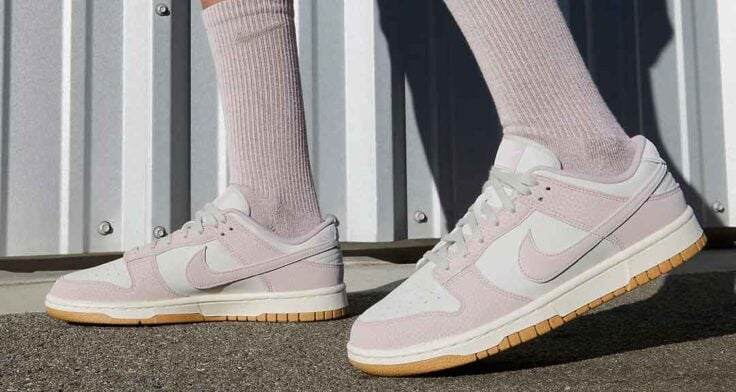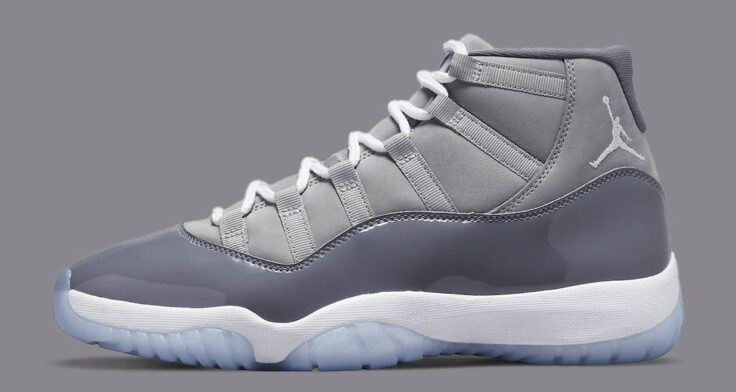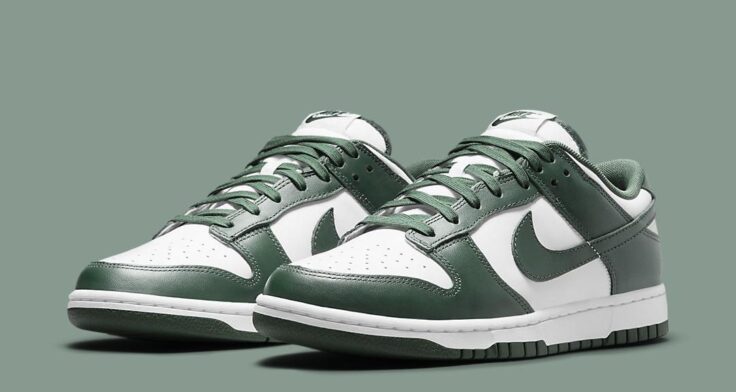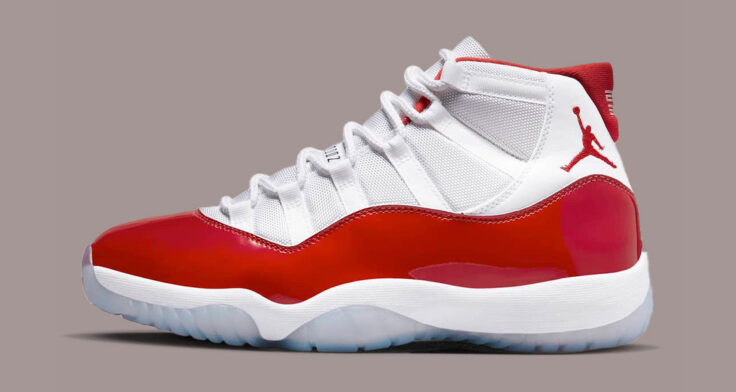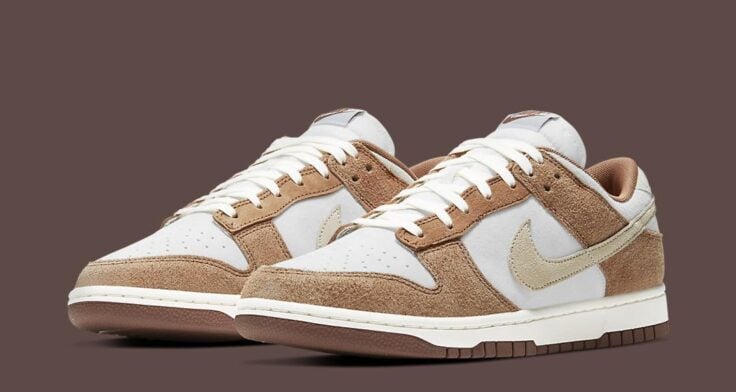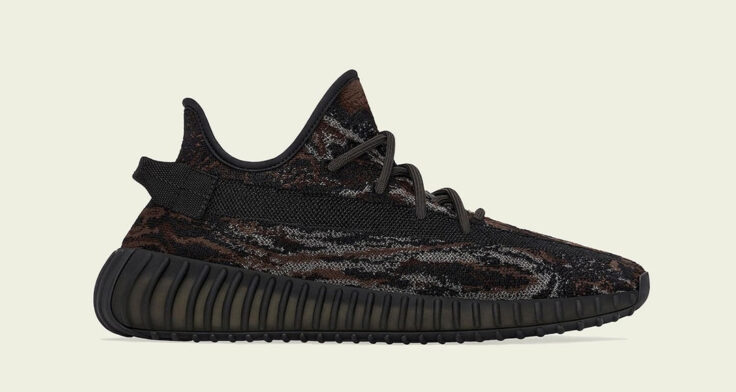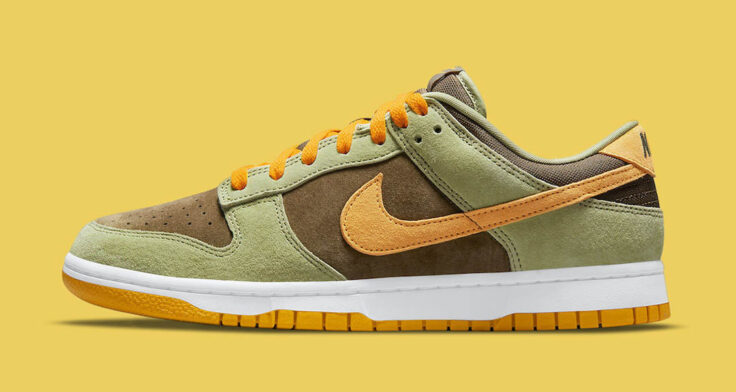The founder and president of Ewing Athletics looks back at the brand’s beginnings and why players should have more say in their products.
Before Kyrie Irving became a c-suite executive at Anta or Stephen Curry was getting shares of Under Armour, or even before Michael Jordan turned himself into a billion-dollar sneaker brand–there was Patrick Ewing.
The basketball hall-of-famer and one of the greatest New York Knicks of all time was the first NBA player to ever own his own sneaker company in Ewing Athletics, which initially debuted in 1989. According to Ewing’s agent David Falk, the player was once the highest paid in the league with his sneakers hitting sales numbers on par with Reebok, Nike and Adidas sneakers of that era.
While Ewing Athletics eventually folded in 1995, it saw a rebirth in 2012 and is still putting up solid numbers in limited quantities today. In addition to that, Patrick has taken on a more front-facing role with the company as not only its owner, but also as Ewing Athletics president.
Here, the legendary center reflects back on starting Ewing Athletics, his sneaker history, and why current players should have more control over their own brand.
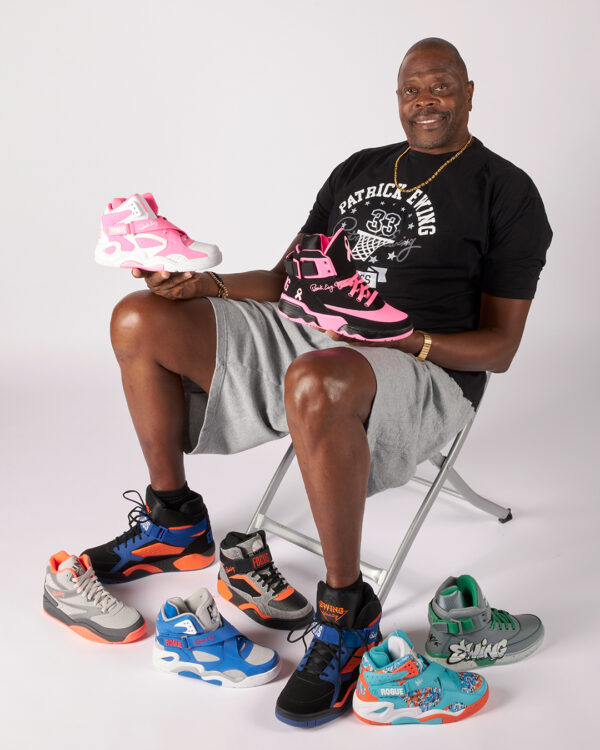
Nice Kicks: Take me back to the very beginning of starting this brand during your playing days and why you wanted to go this route and not sign with another big brand?
Patrick Ewing: I think during my first two years with the Knicks I got hurt and I was with Adidas at that time. Adidas came to me and wanted to reduce my payment because they said that I wasn’t the player that they thought I was going to be. So, I told them to buy me out.
They bought out my contract and Roberto Muller came to me with the idea of starting my own company. My agent David Falk and I thought it was a great idea. So we started the shoe company along with Roberto.
At one point we were one of the largest. We were up there with Nike and Reebok and all these other companies. But then when the sneaker industry took a turn, unfortunately we went out of business. Then, Dave Goldberg convinced me to relaunch the company in 2012 and here we are 11 years later.
NK: There was a period of time during the beginning of the company where you wore unbranded prototypes of the shoe.
PE: Yeah, in all white.
NK: Exactly. What was the statement you were trying to make with those?
PE: I wanted to let the market know that I wasn’t under Adidas.
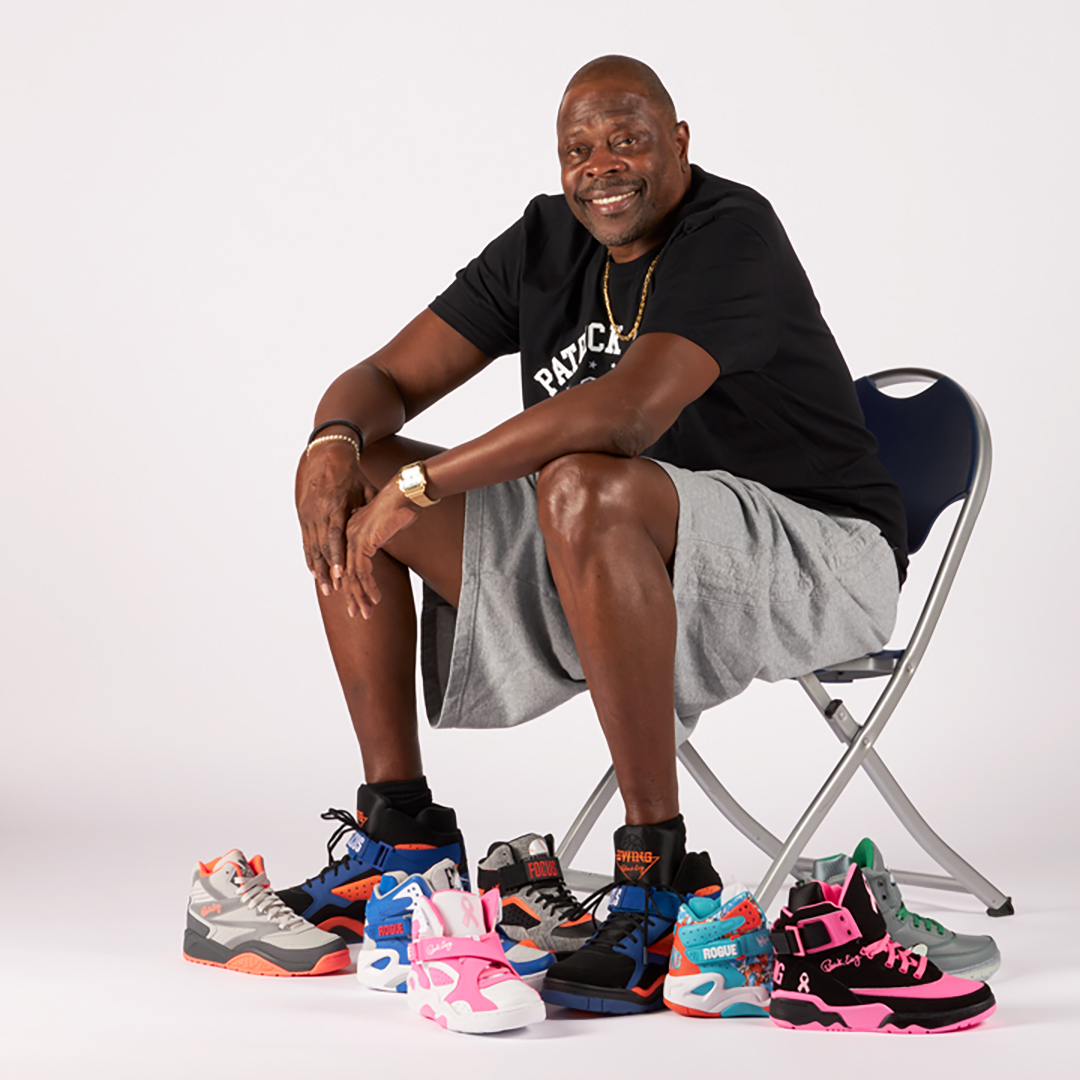
NK: Were you getting comments from other players or reactions in the locker room?
PE: Yes. Everybody wanted to know what the story was, and I told them I was coming out with my own shoes. A lot of people wanted a pair and I was able to give them some, but they couldn’t wear them in the games because they were under their shoe contract.
NK: You were on the original design team when the brand launched. What was important to you in the design of making the shoes in the ’80s and ’90s?
PE: Cost. The first thing was that I wanted them to be affordable to all people. I wanted everybody to be able to wear it.
NK: Before Nike gave Jordan his own subsidiary, you were actually the first NBA player in history to have ownership of his own brand. Did you ever have any fun with Jordan about having that over him?
PE: You know what? I just left it alone. I just kept on trying to do what I can on the floor and let those guys do their things in terms of the marketing.
Another thing I wanted to make sure of when I made the brand was that it was good and it was stable–something that wasn’t going to have any complications or cause people to be saying that it was inferior to the shoes from the other brands.
NK: You’ve obviously spent a lot of time in New York. In your opinion, how important is sneaker culture in the city?
PE: Huge. New York is the Mecca, so if you can do it there, you can do it anywhere.
NK: Amen to that. So the brand relaunched in 2012. How is your role different now than it was before?
PE: I had to take a step back once I took the head coaching job position at Georgetown, because Georgetown is a Nike-sponsored school. The basketball team is a Jordan-sponsored team, so that was part of the deal. I had to take a step back from being a public spokesman of the shoes. But since that coaching job has ended, I’m back in full swing.
NK: Hip-hop really embraced the shoe, not to wear for basketball, but on the streets. What are your thoughts on that?
PE: From day one, hip-hop has embraced my shoes. Tupac wore them. We had actors wearing it. I can’t remember all of them, but there’ve been a lot of people. Not only in New York, but around the world who represented in their different art forms in my shoes.
NK: Back to the NBA and how it currently is now. There’s a few players who’ve used your blueprint to not just take a deal with a major brand, but actually have ownership. From your experience, how important is it for a player to have that type of control?
PE: I think if anyone is able to do their own thing and start their own company or be a part of and have ownership in a company, that is great. All those other companies will do great on their own. But I think that as an individual, if you can do your own thing and it has longevity, that’s a better avenue for them to have.
Stay tuned to Nice Kicks on Instagram and the sneaker release dates page to stay on top of the latest news and drops.
